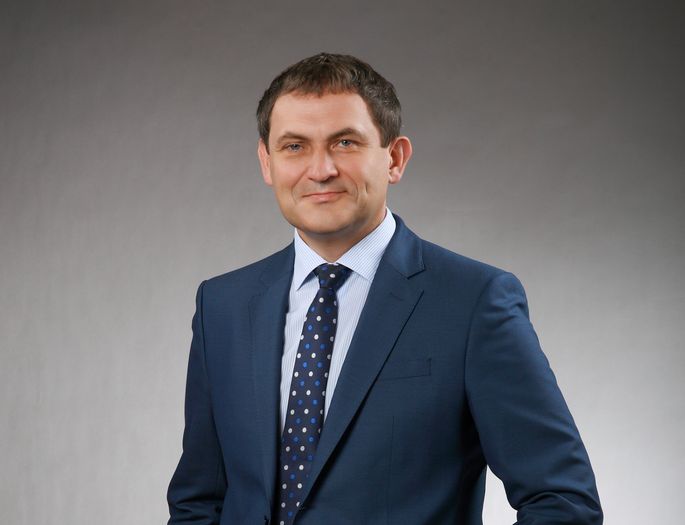
Research carried out by an international team led by Jagiellonian University scientists shows that neither the levels of estradiol (one of the most important female sex hormones) nor the phase of menstrual cycle are certain to influence a woman's perception of male attractiveness.
Until recently, many scientists believed – based on previous research – that female preferences concerning male attractiveness change during different phases of their menstrual cycle. According to that theory, during the stages of increased fertility women prefer very masculine men with a deeper voice, stronger body scent and prominent facial features. These preferences would change when women entered the infertile phase of their cycle. It was theorised that women are looking for different types of men when it comes to producing offspring versus raising it. Masculine characteristics (such as a "manly face") were supposed to guarantee a "good" genetic makeup, which in turn increases the chance of survival of children and further spreading of the mother's genes. At the same time, the macho-type is more likely to be unfaithful as well as to endanger his life due to generally more aggressive behaviour. Because of this, women would choose more caring and sensitive men when it comes to long-term relationships and raising children.
More masculine or less masculine?
An article published by Dr Urszula Marcinkowska from the Department of Health and Environment of the JU Medical College, based on research conducted in collaboration with Harvard University, Yale University, University of Wrocław and Oslo University Hospital, describes the results of a study in which 115 women from the area near Mogielnica (the highest mountain of the Island Beskids) were examined daily to check their estradiol levels. "My mentor, Prof. Grażyna Jasieńska, has been working in this region for years. Just a few years ago, the local population here was very peculiar – they used very little agricultural machinery. It was a phenomenon unique on the European scale. The fact that hormonal contraceptives were very rarely used there was also an important factor", said Dr Marcinkowska. Daily saliva tests allowed for precise determination of menstrual cycle phases. During these different phases, the participants of the study were shown a set of 9 slides, each showing two male faces, both altered using photo editing computer programmes – one was 40% feminised, the other 40% masculinised. The women were told to decide which face is more attractive in the context of short- and long-term relationship.
 After their responses were analysed, it turned out that women are only slightly more attracted to masculinised faces, but it had nothing to do with the duration of the theoretical relationship. Moreover, marital status of the women had no influence on their choice. Finally, the perception of male attractiveness was also not influenced by the levels of estradiol and menstrual cycle phase. "We're currently assembling a group of women in Kraków to conduct similar research. This time, every participant will fill out questionnaires multiple times during their cycle, based on their fertility level. We then plan to compare the results of this future research with the current ones", Dr Marcinkowska added.
After their responses were analysed, it turned out that women are only slightly more attracted to masculinised faces, but it had nothing to do with the duration of the theoretical relationship. Moreover, marital status of the women had no influence on their choice. Finally, the perception of male attractiveness was also not influenced by the levels of estradiol and menstrual cycle phase. "We're currently assembling a group of women in Kraków to conduct similar research. This time, every participant will fill out questionnaires multiple times during their cycle, based on their fertility level. We then plan to compare the results of this future research with the current ones", Dr Marcinkowska added.
The results of the research are also important on the methodological level. They show that to correctly determine the phases of menstrual cycle, it is necessary to measure the amount of hormones usually disregarded in similar studies.
Dr Marcinkowska does not want to jump into conclusions. We cannot yet be fully certain if there are indeed not differences in preferences of women during various phases of the menstrual cycle. Currently, we only know that the masculinity of facial features does not influence their choices. Dr Marcinkowska also added that the results may also be influenced by the fact that photographs are not three dimensional.
What do hormones influence? Further research
The research conducted so far are just the beginning of a large-scale study which aims to discover the effects of hormones (mainly estradiol and progesterone) on various aspects of the lives of women. The scientists plan to measure the daily concentration of hormones as well as the differences between fertile and infertile phase of the menstrual cycle. "We will ask the participants about their interpersonal relations, test their perception of attractiveness of facial features and other part of a male body, and sociosexual inclinations (i.e. their opinion on separating sex from love)", said Dr Marcinkowska. "We also plan to investigate their preference when it comes to bearded men and how the faces of the women change over time". This last study will determine whether men and women can visually notice if a woman is fertile or not. "Since we cooperate with research team from every continent, we will be able to determine if there are any ethnic and cultural differences," said Dr Marcinkowska.





